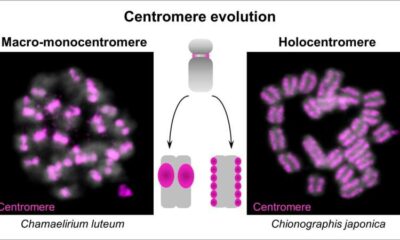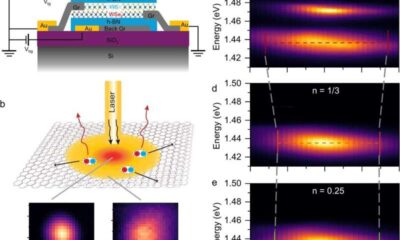Health
New Research Targets Mitochondrial Protein for Autoimmune Treatment

A study led by Swansea University has identified a mitochondrial protein as a promising target for treating certain autoimmune diseases. Published in Nature Communications, the research focuses on how the protein, known as ABHD11, regulates energy production in immune cells, particularly T-cells, which are crucial in the body’s immune response.
Autoimmune diseases such as rheumatoid arthritis and type 1 diabetes occur when T-cells mistakenly attack the body’s own tissues instead of fighting infections. Under normal circumstances, T-cells adjust their metabolism—how they process sugars and proteins—to effectively respond to pathogens. In autoimmune conditions, these metabolic changes become dysfunctional, resulting in harmful effects on the body.
The research team examined immune cells from individuals both with and without autoimmune diseases. They discovered that inhibiting the function of ABHD11 through a targeted drug significantly reduced T-cell overactivity, leading to decreased inflammation and lower production of inflammatory signals. Notably, blocking ABHD11 also delayed the onset of type 1 diabetes in their studies, suggesting that therapies targeting this protein could play a crucial role in managing autoimmune disorders.
Potential for New Treatments
Dr. Nick Jones from Swansea University’s Medical School emphasized the implications of this research, stating, “This research opens up exciting possibilities for developing new treatments that work by adjusting how immune cells use fuels from our diet—a process known as metabolism. ABHD11 could be a valuable target for drugs aimed at reducing inflammation and preventing autoimmune flare-ups.” He further noted that current treatments often come with significant side effects and are not universally effective.
The study’s findings are a significant step towards understanding how metabolic pathways in T-cells can be manipulated to provide a safer and more effective approach to treatment. Joint first author Yasmin Jenkins, a Ph.D. student at Swansea University, expressed hope for the future, stating, “Manipulating immune cell metabolism in autoimmune disease offers a promising therapeutic avenue to explore, and our work highlights the exciting potential of ABHD11 as a target for the development of new treatments.”
The research team is now exploring the effects of targeting ABHD11 in other immune cell types, which could have implications for a broader range of autoimmune diseases.
As the understanding of the role of mitochondrial proteins in immune response expands, the potential for developing innovative therapies continues to grow. This research not only sheds light on the mechanisms behind autoimmune diseases but also paves the way for future studies aimed at finding effective treatments.
More details on the study can be found in the article “Mitochondrial ABHD11 inhibition drives sterol metabolism to modulate T-cell effector function” by Benjamin J. Jenkins et al., published in Nature Communications on March 15, 2025, DOI: 10.1038/s41467-025-65417-4.
-

 Science2 weeks ago
Science2 weeks agoNostradamus’ 2026 Predictions: Star Death and Dark Events Loom
-

 Technology1 month ago
Technology1 month agoOpenAI to Implement Age Verification for ChatGPT by December 2025
-

 Technology6 months ago
Technology6 months agoDiscover the Top 10 Calorie Counting Apps of 2025
-

 Health4 months ago
Health4 months agoBella Hadid Shares Health Update After Treatment for Lyme Disease
-

 Health4 months ago
Health4 months agoAnalysts Project Stronger Growth for Apple’s iPhone 17 Lineup
-

 Health4 months ago
Health4 months agoErin Bates Shares Recovery Update Following Sepsis Complications
-

 Technology4 months ago
Technology4 months agoElectric Moto Influencer Surronster Arrested in Tijuana
-

 Technology5 months ago
Technology5 months agoDiscover How to Reverse Image Search Using ChatGPT Effortlessly
-

 Technology6 months ago
Technology6 months agoMeta Initiates $60B AI Data Center Expansion, Starting in Ohio
-

 Technology6 months ago
Technology6 months agoRecovering a Suspended TikTok Account: A Step-by-Step Guide
-

 Education4 months ago
Education4 months agoHarvard Secures Court Victory Over Federal Funding Cuts
-

 Technology2 months ago
Technology2 months agoDiscover 2025’s Top GPUs for Exceptional 4K Gaming Performance





















